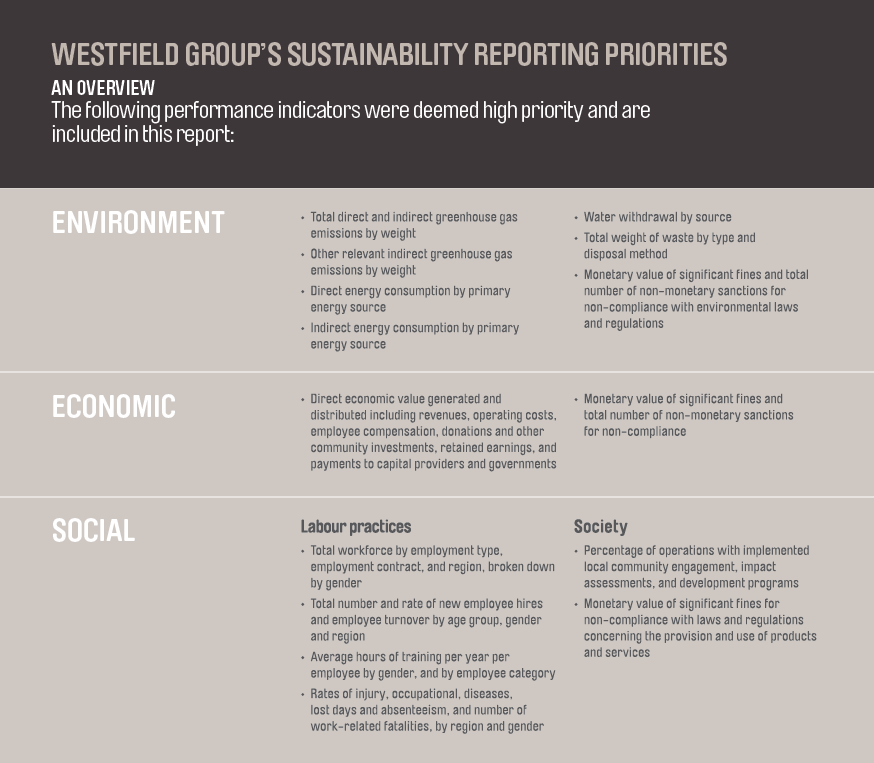
Westfield Group’s 2013 Corporate Sustainability Report has been prepared using the guidelines of the Global Reporting Initiative (GRI) G3 Framework.
This report covers the Group’s performance during 2012 across a number of key indicators and provides a comparison with the baseline year of sustainability reporting.
The Westfield Group’s Sustainability Report is just one way in which the Group reports on its sustainable practices and is complemented by reports generated to meet regulatory requirements, company documents, and other voluntary reporting submissions such as those to the Carbon Disclosure Project and the Global Real Estate Sustainability Benchmark (GRESB).
Scope
The scope of the report includes Westfield’s physical assets in Australia, New Zealand, the United States and the United Kingdom – including shopping centres, office buildings, and construction and development sites. It does not include assets in which Westfield has financial interests, but does not actively manage. It also excludes Westfield’s interests in Brazil, which were acquired during 2011. During 2012 Westfield ceased its involvement with the joint venture which held those assets.
Within the broad framework of the GRI, which suggests a range of topics companies might consider when reviewing sustainability performance, the Group has selected 16 key performance indicators against which it is reporting.
As with previous years the reported performance indicators relate to the company’s impact on the environment, its economic performance, and social factors which include labour practices and its role in the community.
Materiality
Senior management assess the materiality of key sustainability issues after consulting relevant staff throughout the business. This takes place primarily through Corporate Social Responsibility Working Groups in each of Westfield’s operating countries. This ensures that topics identified in previous years remain material. It also provides a forum through which new performance indicators can be identified and reported – as was the case with water and waste in last year’s report.
With increased reporting on sustainability issues both through this document and more generally, Westfield is also able to engage with external stakeholders on how it can continue to improve its environmental, economic and social sustainability performance.

